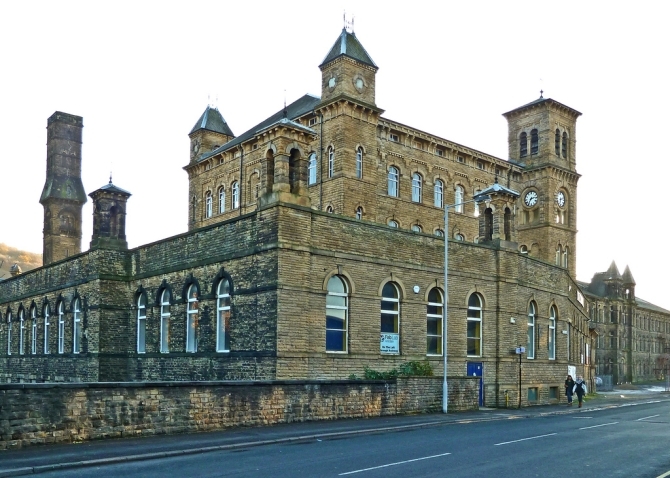A West Yorkshire mill complex — listed among the top ten per cent of Britain’s most important historic buildings — is proving equally popular with television viewers as it is with its business tenants.

Dalton Mills’ historic Clock Tower has become a thriving business hub since the sprawling 1860s site was acquired by Northampton-based Bellissimo Workspace last year. Its boss, Paul Harris, is investing £30m in renovating the Grade II listed Keighley building and converting its iconic Clock Tower and Riverside Workshop into a 50,000sq ft business hub.
The first phase of the regeneration, to create 20,000sq ft of high-quality open plan office space, has now been completed and is available on flexible leases from as little as £5 per sq ft, making it ideal for start-up businesses. There are also a number of workshops and storage spaces available in other parts of the building.
But with 85 per cent of the office space already taken by a range of ventures, and work about to start on creating more offices and retail and leisure units, the Dalton Lane site is now also attracting the attention of film and television production companies.
Listed on the Creative England website, Harris finds himself fielding an increasing number of enquiries from location scouts searching for original Victorian features to add authenticity to their productions. Dalton Mills has already become a popular backdrop for dozens of films and TV programmes and has “starring” roles in hit dramas such as Peaky Blinders, Bedlam, North and South, and a host of Bollywood films.
In its heyday, Dalton Mills was a thriving manufacturing base employing more than 1,000 men, women and children. As the industry suffered so, too, did the fortunes of the building and by the 1980’s was virtually abandoned. It was purchased by Magna Holdings 10 years ago, but continued to be dogged by bad luck, including a major 2010 blaze, and when the company went into administration the entire 200,000sq ft building was put on the market.
“Dalton Mills was a building which immediately caught my eye as I personally think it is beautiful and offers so much scope and potential,” admitted Harris. “That is why I would like to hear from business people and commercial ventures in the region who could envisage their future in this wonderful setting.”
In November last year English Heritage upgraded the building to Grade II status. Although the change in listing means stricter controls about preserving the property, it may also offer greater access to funding to speed up the restoration, he explained.
“After numerous meetings with the local council, planners and English Heritage, whom have all been extremely supportive, I am confident that we can work together to create a sustainable future for Dalton Mills which benefits the local area and wider community,” concluded the healthcare entrepreneur.